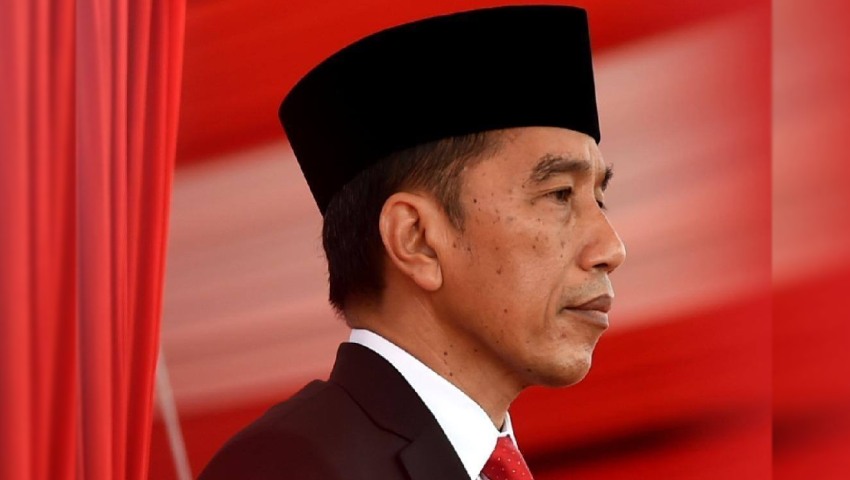How should Canberra respond to an erosion of trust in Australia among Indonesians?
To continue reading the rest of this article, please log in.
Create free account to get unlimited news articles and more!
The Lowy Institute has published findings from its Indonesia Poll 2021 – which involved a national survey of 3,000 Indonesian adults between 29 November and 24 December 2021.
The survey revealed trust in Australia to act responsibly on the global stage fell by 20 percentage points since the last poll was taken in 2011, down from 75 per cent to 55 per cent.
Over a third (34 per cent) of Indonesians are wary of Australia, stating the nation poses a threat to security.
Trust in the United States has also slipped, falling 16 percentage points to 56 per cent over the same period.
However, Indonesians continue to place more trust in Australia and the United States than China.
Trust in China has dipped 18 percentage points over the past decade, falling to just 42 per cent.
So, how should foreign policy observers react to this trend?
According to Lowy Institute analysts Ben Bland, director of the south-east Asia program, and Natasha Kassam, director of the public opinion and foreign policy program, these results should not be cause for concern.
They claim the results suggest Indonesians have largely rejected the bipolar US-China lens, with 84 per cent of surveyed respondents favouring a neutral geopolitical stance.
“This ought not to come as a surprise,” Bland and Kassam write.
“Diplomatic talk in Canberra of Indonesia’s strategic convergence with Australia seems to be based on hope more than experience, given Jakarta’s deep-seated tradition of non-alignment.”
Jakarta’s recent foreign policy decision-making has reflected the national will, with the government resisting Western pressure to uninvite Russian President Vladimir Putin to the G20 Summit following the country’s invasion of Ukraine.
“[It] reflects Indonesia’s desire not to be seen to be picking a side, and the government’s desire to focus on economic recovery post-pandemic,” Bland and Kassam continue.
The analysts claim Canberra should “embrace” Indonesia’s non-aligned status, given they are more wary of China.
“While Australian foreign policy is increasingly framed between Washington and Beijing, the Indonesian public sees a multipolar world where different partners are trusted and liked in different ways for different reasons,” they write.
The Indonesian public’s multipolar perception of the world is reflected in the survey results, with Saudi Arabia, for example, favoured as a source of investment, but Japan’s economic development model is most admired.
“Some Islamic leaders are very well liked, but when asked where they want to study or work most overseas, Indonesians choose the US, Japan and South Korea,” Bland and Kassam note.
“Near neighbours Singapore and Malaysia, emerge very positively in our survey but there is much less warmth for other south-east Asian nations such as Vietnam and Myanmar.”
Bland and Kassam acknowledge Australia and the United States would prefer Indonesia discard its long-held “independent and active” foreign policy approach in favour of a stronger anti-China posture but claim such a shift is “not realistic”.
“A thriving, prosperous, independent and active Indonesia can help ensure a more multipolar, balanced Asia, where it is harder for any one power to dominate,” they write.
The analysts reference remarks made by Mohammad Hatta, one of Indonesia’s founders who said the country should “row between two reefs” during the Cold War.
Echoing Hatta’s sentiment, a senior Indonesian official recently quipped, “today, we are still trying to row between two reefs, but with a much bigger vessel”.
Bland and Kassam continue: “Rather than leaning on Indonesia to fall into line with the West’s strategic objectives, or simply hoping it will, it would be best to help Indonesians meet the key security priorities they raised in the survey – building a stronger Indonesian economy, helping create jobs and mitigating the risks of the pandemic and food security disruptions.
“Working with the Indonesian people to build a more resilient and prosperous society will boost Jakarta’s ability to withstand pressure from outsiders and take more of a leadership role within South-East Asia.”
Get involved with the discussion and let us know your thoughts on Australia’s future role and position in the Indo-Pacific region and what you would like to see from Australia's political leaders in terms of partisan and bipartisan agenda setting in the comments section below, or get in touch with

 Login
Login







